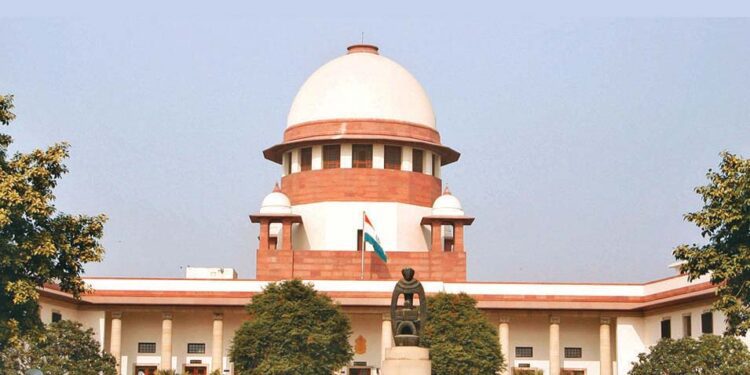Team Blitz India
THE Supreme Court has stressed that the power to arrest is “far more intrusive and consequential” than the authority to investigate, reminding law enforcement agencies that the law does not mandate an arrest in every case where an investigation is necessary.
Highlighting the fundamental difference between the power to arrest and the power to investigate, a Bench of Justice Sanjiv Khanna, Justice MM Sundresh and Justice Bela M Trivedi observed that while investigating authorities have the duty to uncover the truth, the power to arrest must be exercised with greater caution and discretion.
“No legislation says that you must arrest in every case for conducting investigation. But when you exercise your right to make arrest, you must have the material to justify such actions…after all, the power of arrest is far more intrusive and consequential than the power to investigate,” remarked the Bench. Series of petitions The court’s observations came as it reserved its judgment on a series of petitions related to arrests under the Central Goods and Services Tax (CGST) Act. States have corresponding provisions under the state GST laws.
Additional Solicitor General SV Raju, appearing for the Centre and law enforcement agencies, defended the statutes empowering various officers to make arrests under the two laws, saying that the authority to make arrest under the GST Act arises from an officer having a degree of suspicion regarding the commission of an offence. He said an arrest could be made when there is “more than suspicion” and “less than grave suspicion” with the latter standard of framing penal charges by a court of law. But the Bench seemed to differ. “Aren’t you suggesting standards which are not measurable? Why should we hinge on framing of charge? You can’t equate the right to arrest with framing of charges,” it commented.
Arrest not mandatory
The court added that it is not mandatory to arrest someone before an agency filed a chargesheet. “This court has held in a series of judgments that the right to arrest is different from the necessity to arrest,” said the bench, underscoring judicial prudence.
While Raju said that an arrest has to proceed on the subjective satisfaction of an arresting officer, the court emphasised that arresting officers must first apply the correct benchmark before assessing whether there is adequate incriminating material to justify an arrest.
“Subjective assessment must show that the officer has applied the right test — whether the person has committed that offence and not it’s not just suspicion. When he sets the right benchmark then the question of materials would arise. If the principles are wrongly applied, the subjective satisfaction is bound to be wrong,” said the court.
















